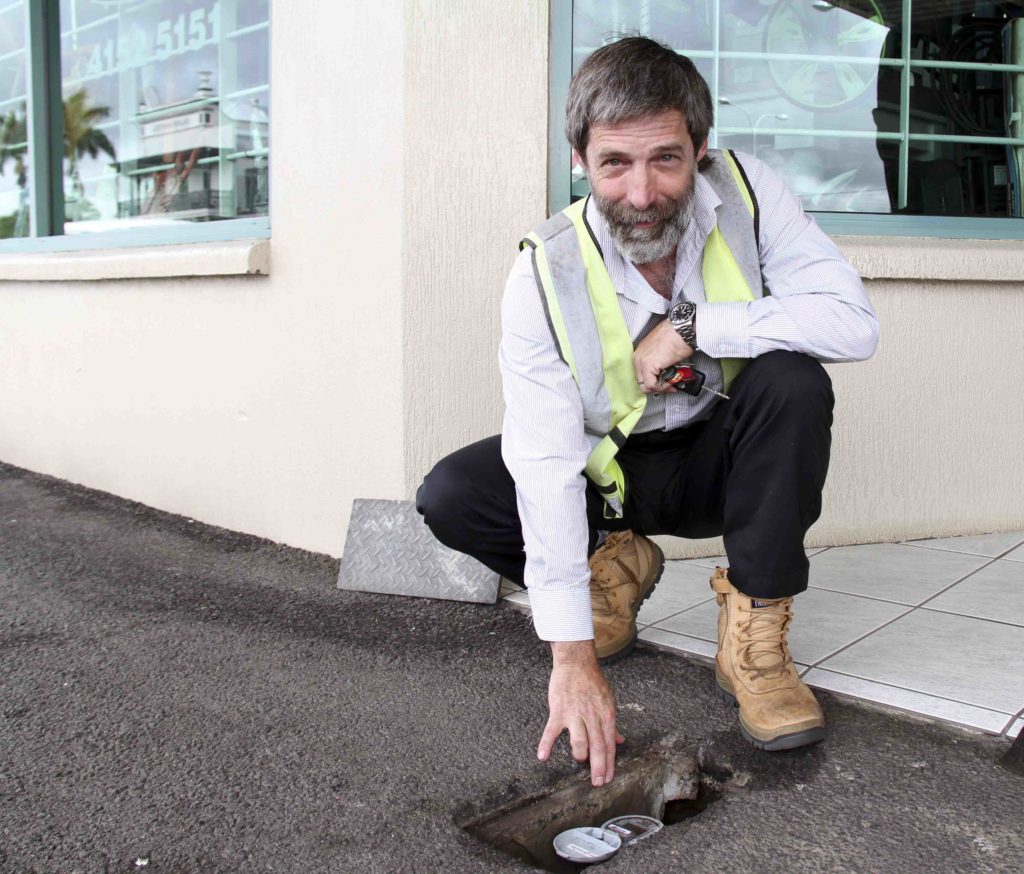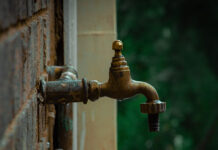
Smart water meters are still being installed in some areas throughout the Bundaberg Region but the trial program is already saving big dollars and thousands of litres of water.
The 24-month trial is seeing computerised water meters installed at more than 1200 properties in Gin Gin, Childers, Burnett Heads and the Bundaberg CBD.
While installation continues, Council’s water services team is already accessing the online portal to identify leaks.
Through a quick browse of the data, network program coordinator Geoff Tansley can see his top priorities for the day – two properties leaking more than 1500 litres an hour.
“To detect this leak previously we would have had to wait six months so that we could actually verify the usage by what we read on the meter,” Mr Tansley said.
He said the technology had already helped his team to identify an extensive list of leaks, saving property owners money and potential damage, including a business property in the Bundaberg CBD.
“This meter has a leak of about 60 litres per hour and the system identified it from a daily report,” he said.
“This leak is actually under an asphalt surface so there is no other way of detecting it.
He said while it was still early days, the trial had already demonstrated how it could save Council and residents money.
“The information that we get back from the meters can indicate whether or not there is a leak. So we can validate that from a desk without having to come out,” he said.
“We can notify the customers very early so that they can also address the issue. They can get a plumber in and investigate further and fix the leak and save themselves some money.”
Smart meters ‘way of the future'
Taggle is one of the companies engaged to install smart water meters throughout the Bundaberg Region.
Business development officer Mark Halliwell said the meters worked with MiWater software available to both Council and residents to detect leaks.
“Overnight and in the wee small hours of the morning there’s very little flow, if any flow, in a typical property,” Mr Halliwell said.
“The MiWater meter data management software, which is being used with all of these meters, runs an examination over everybody’s usage overnight and picks up those zero flows.
“After a couple of days of this it alerts both the Council and the resident as to the possibility of a leak.
“It can mean an awful lot of money saved.”
Mr Halliwell said Taggle had worked with more than 30 Councils and had about 135,000 meters around the country from which they collect hourly data.
“In terms of infrastructure damage we have had occasions in other towns and cities where people have had water leaks underneath their houses – concealed leaks – which just erode away at the foundations of the property,” he said.
“So it’s a great opportunity for people to protect their properties.”
He said smart water meters were the way of the future.
“The old adage in management is if you’re not monitoring it you can’t manage it.
“This type of technology can help Councils to get a handle on what’s happening with their pipes under the ground.”
It's expected that residents participating in the trial will have access to the free MiWater online portal towards the middle of this year.
They will receive real-time water usage data and email and SMS notifications about potential leaks.
Anyone who is participating in the trial will have already been contacted directly by Council.







